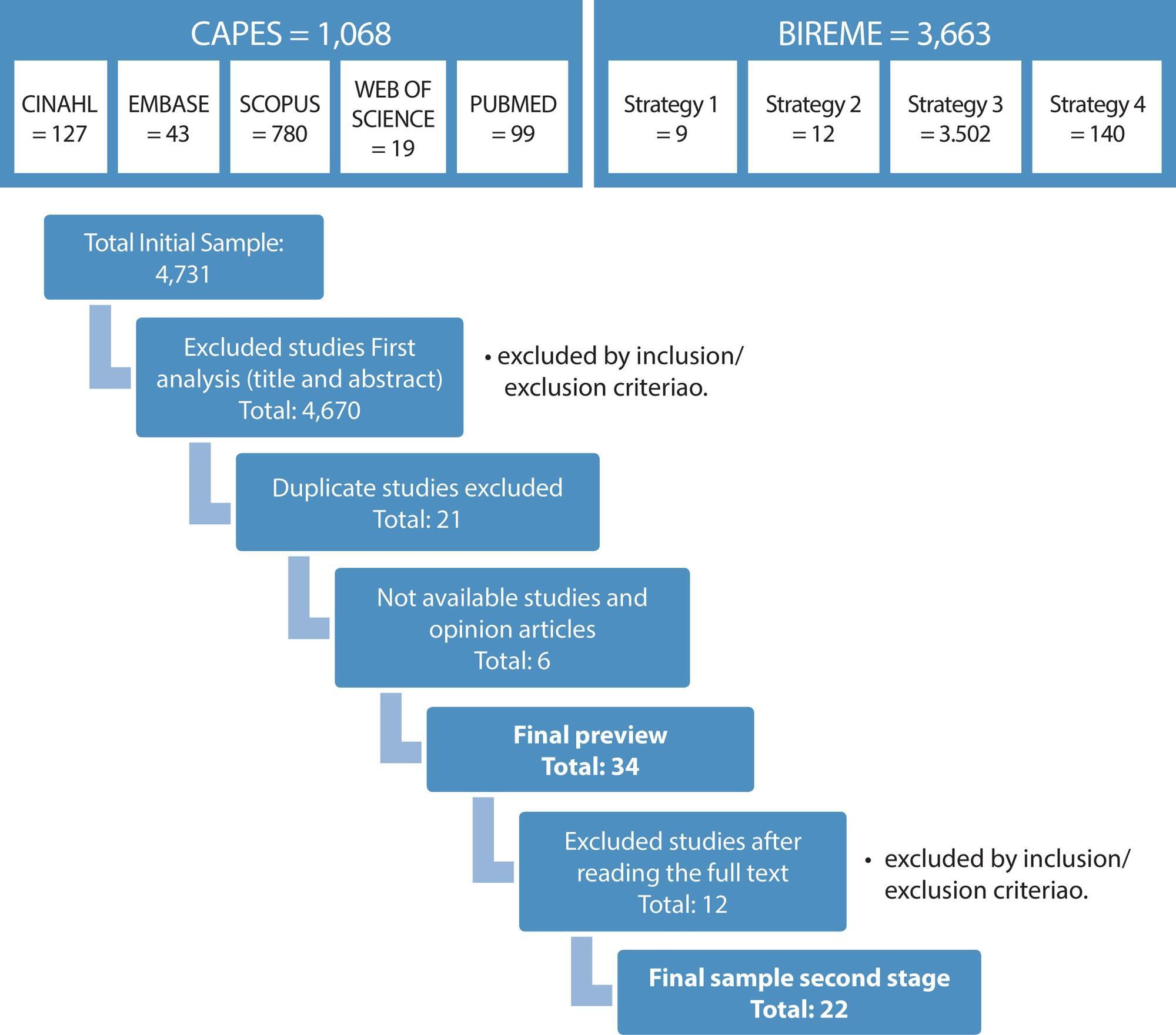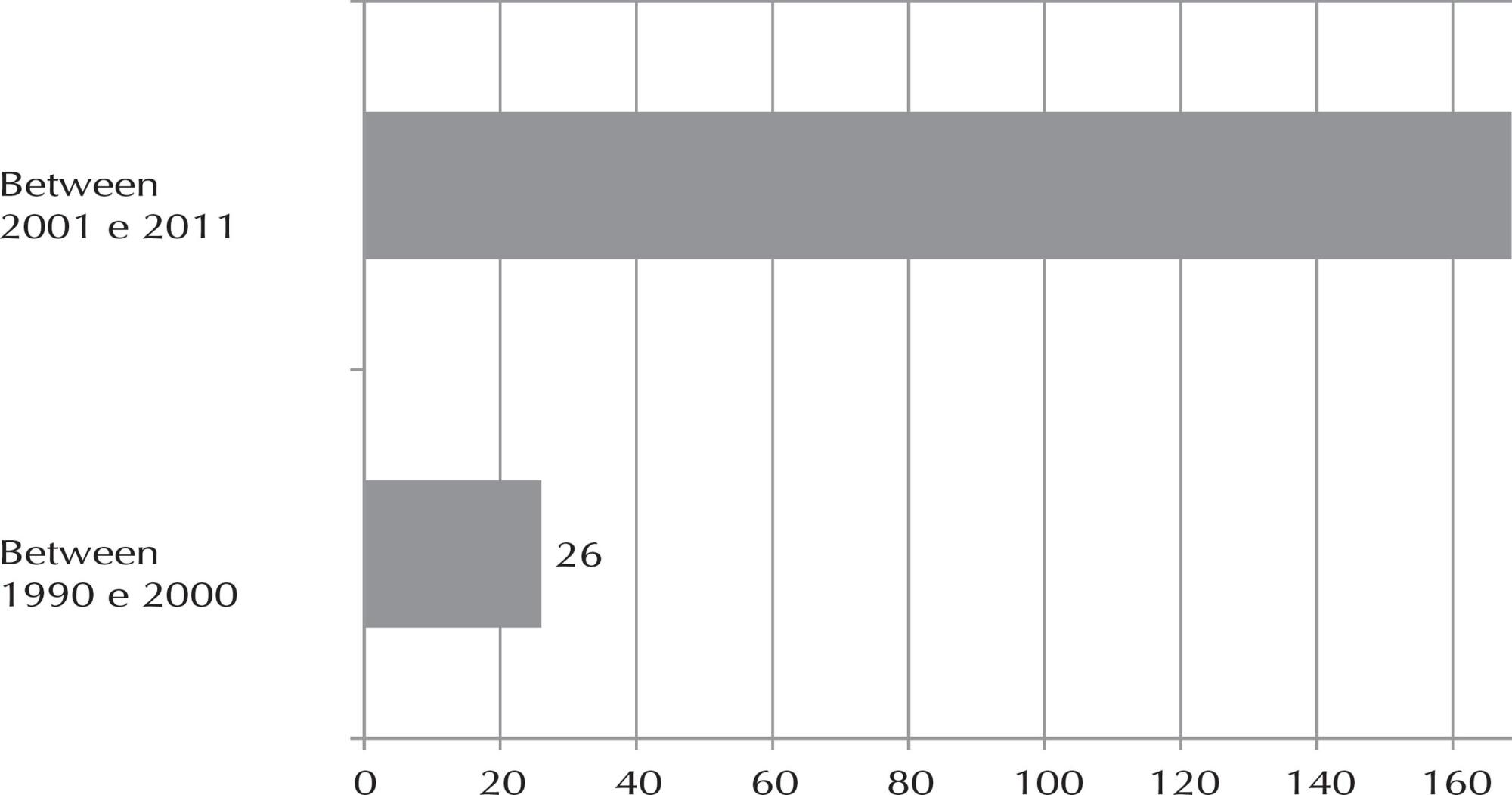-
ORIGINAL ARTICLE
Teaching entrepreneurship in undergraduate Nursing course: evaluation of an educational proposal
Revista Brasileira de Enfermagem. 2023;76(2):e20210244
02-06-2023
Resumo
ORIGINAL ARTICLETeaching entrepreneurship in undergraduate Nursing course: evaluation of an educational proposal
Revista Brasileira de Enfermagem. 2023;76(2):e20210244
02-06-2023DOI 10.1590/0034-7167-2021-0244
Visualizações0Ver maisABSTRACT
Objective:
To evaluate a proposal for teaching entrepreneurship in an undergraduate Nursing course that uses active methodologies and activities based on the theory of meaningful learning.
Methods:
Interventional, prospective study, with a quantitative perspective, with a total of 102 participating students, carried out from July 2017 to December 2019 at a public university in the state of Sao Paulo. Statistical analysis were performed by non-parametric Chi-square or Fisher’s exact tests, with differences considered statistically significant if p < 0.05.
Results:
Improvements were observed in almost all items evaluated, revealing that meaningful learning became more effective with the use of active teaching methodologies. Most students need adaptation and effort to be put into these methods.
Conclusions:
The proposal offers pedagogical content adaptation, specifically for nursing students. New research should expand teaching-learning techniques for the development of future nurses, preparing them adequately for the job market.

-
ORIGINAL ARTICLE
Entrepreneurship among Undergraduate Nursing Students at a public university
Revista Brasileira de Enfermagem. 2022;75(1):e20201388
09-29-2022
Resumo
ORIGINAL ARTICLEEntrepreneurship among Undergraduate Nursing Students at a public university
Revista Brasileira de Enfermagem. 2022;75(1):e20201388
09-29-2022DOI 10.1590/0034-7167-2020-1388
Visualizações0Ver maisABSTRACT
Objectives:
to identify undergraduate nursing students' entrepreneurial tendency at a public university.
Methods:
cross-sectional study, with a quantitative approach, with 135 undergraduate nursing students from a public university in the interior of the state of Rio Grande do Sul, Brazil. Data were collected using a socio-professional characterization form and a General measure of Enterprising Tendency test and analyzed using descriptive statistics.
Results:
among the five entrepreneurial tendencies, students presented results equal or above average in two dimensions: Drive and Determination (82.2%) and Need for Success (51.1%). The Creative tendency was the dimension with the highest percentage of participants below the average (68.9%). However, students in research or extension groups scored equal or above average in all five entrepreneurial tendencies.
Conclusions:
students showed low entrepreneurial tendencies, indicating the need for a broader approach to the subject in nursing education.
-
ORIGINAL ARTICLE
Profile and entrepreneurial intention of nursing students: a comparison between Brazil and Chile
Revista Brasileira de Enfermagem. 2020;73(6):e20190890
09-07-2020
Resumo
ORIGINAL ARTICLEProfile and entrepreneurial intention of nursing students: a comparison between Brazil and Chile
Revista Brasileira de Enfermagem. 2020;73(6):e20190890
09-07-2020DOI 10.1590/0034-7167-2019-0890
Visualizações0Ver maisABSTRACT
Objective:
to identify and compare factors associated with profile, intentions, motivations, and barriers to entrepreneurial behavior of nursing students from Brazil and Chile.
Methods:
this cross-sectional study was carried out between March and September 2018 including 889 nursing students. A form was used to assess the socio-demographic profile, professional claims, entrepreneurial intentions and motivations. Statistical analysis used Chi-Square and Fisher’s Exact tests, with a 5% significance level, and a simple logistic regression model.
Results:
there are significant differences between countries in the profile of students and in the motivations studied, but not in professional pretensions and entrepreneurial intentions. Lack of education on the subject reveals itself as an important barrier to entrepreneurship.
Conclusion:
given the lack of teaching entrepreneurship in undergraduate nursing courses and the characteristics inherent to students, education must be appropriate to different cultures to prepare future professionals for other areas of practice.
-
REVISÃO
Entrepreneurship and Nursing: integrative review
Revista Brasileira de Enfermagem. 2019;72(suppl 1):321-330
02-01-2019
Resumo
REVISÃOEntrepreneurship and Nursing: integrative review
Revista Brasileira de Enfermagem. 2019;72(suppl 1):321-330
02-01-2019DOI 10.1590/0034-7167-2018-0498
Visualizações0Ver maisABSTRACT
Objective:
To identify the knowledge produced on business entrepreneurship in Nursing.
Method:
Integrative literature review in the following databases: Cumulative Index to Nursing and Allied Health Literature (CINAHL), EMBASE, SCOPUS, Web of Science, PubMed, Medline, Latin American and Caribbean Literature in Health Sciences (LILACS), Nursing Database (BDENF), Index Psychology and National Information Center of Medical Sciences of Cuba (CUMED). We included available studies in their totality in the period from 2007 to 2017.
Results:
22 articles were included. The categories that emerged from the study are the following: Concepts of entrepreneurship in nursing, Profile of the entrepreneur nurse, Business Diversity, Business Management, Barriers to business entrepreneurship in nursing, Support to entrepreneurial nurses and Entrepreneurship in Nursing Undergraduate.
Conclusion:
There is a need to prepare nurses with adequate skills to increase the capacity to integrate into the labor market and to improve their own well-being and that of society.

-
Entrepreneurship in Nursing: overview of companies in the State of São Paulo
Revista Brasileira de Enfermagem. 2015;68(1):40-44
01-01-2015
Resumo
Entrepreneurship in Nursing: overview of companies in the State of São Paulo
Revista Brasileira de Enfermagem. 2015;68(1):40-44
01-01-2015DOI 10.1590/0034-7167.2015680106i
Visualizações0Ver maisObjective:
the present study aimed to identify and characterize nursing companies managed by entrepreneur nurses registered at the Commercial Registry of São Paulo by 2011.
Method:
it's a descriptive, exploratory study, whose data collection, made throughout January 2012, was carried out on the Commercial Registry of Sao Paulo website. This non-governmental body has the function of registering the opening of companies and supervising their trade situation.
Results and conclusion:
this study allowed us to identify that the entrepreneur nurse is a growing reality through the identification of 196 companies opened by these professionals. Afterwards, it was analyzed their time of functioning, the main economic activity of the company, capital value, percentage of nurse partners and the distribution of companies by region of Sao Paulo State.




